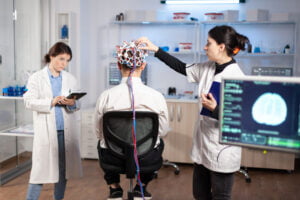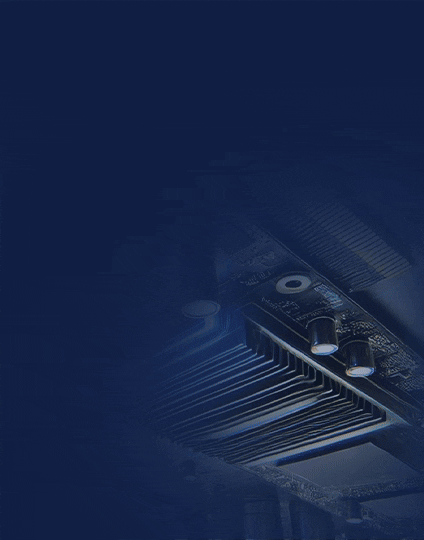In recent years, the healthcare industry has witnessed a remarkable transformation, driven largely by the advancements in technology. Among the most groundbreaking innovations is the integration of Artificial Intelligence (AI) into smart healthcare devices, which is revolutionizing patient care. These devices, ranging from wearable fitness trackers to advanced diagnostic tools, are designed not only to monitor patients’ vital signs but also to provide real-time, actionable insights that can enhance overall healthcare delivery.
AI’s ability to analyze vast amounts of health data in real time has empowered healthcare professionals to make quicker, more informed decisions, often before symptoms even manifest. By enabling constant monitoring of a patient’s health, AI has taken a significant step toward personalized, proactive care. Whether it’s tracking chronic conditions, predicting health risks, or facilitating remote consultations, the combination of AI and smart devices offers new levels of precision and efficiency.
This blog explores how AI in smart healthcare devices is enabling real-time monitoring for patients, improving health outcomes, and changing the way we approach healthcare on a global scale.

The Role of AI in Smart Healthcare
Artificial Intelligence (AI) is fundamentally transforming the landscape of healthcare, especially through its integration into smart healthcare devices. These devices, powered by AI, can continuously monitor patients’ health and provide real-time insights, which can significantly improve the quality of care and patient outcomes. Here’s a look at how AI plays a pivotal role in advancing healthcare:
1. Data Analysis and Interpretation
One of AI’s most powerful capabilities is its ability to process and analyze large volumes of complex health data quickly and accurately. AI algorithms can detect patterns and anomalies in patient data—such as vital signs, lab results, or medical imaging—that may not be immediately visible to human practitioners. By analyzing this data, AI can provide healthcare professionals with critical insights that guide timely interventions and treatment plans.
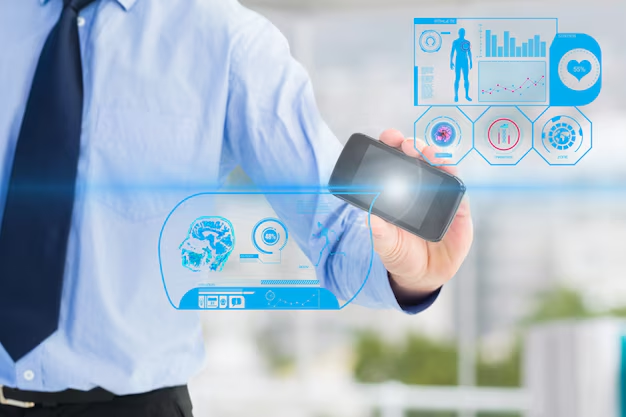
2. Personalized Care
AI enables personalized healthcare by tailoring treatment recommendations based on individual patient data. Unlike traditional approaches, which may adopt a one-size-fits-all model, AI uses data from wearable devices, medical history, and real-time inputs to provide insights that are uniquely suited to each patient. For example, AI can adjust the dosages of medications in real-time based on a patient’s evolving condition, ensuring that the treatment remains optimal throughout the course of care.
3. Predictive Analytics
One of the most exciting applications of AI in healthcare is its ability to predict future health risks. By analyzing historical data and real-time monitoring, AI can forecast potential health issues before they occur, giving healthcare providers the opportunity to intervene early. For instance, AI can predict the likelihood of a heart attack, stroke, or diabetic complications by recognizing early warning signs from wearable health devices that monitor things like heart rate variability, blood pressure, and glucose levels.
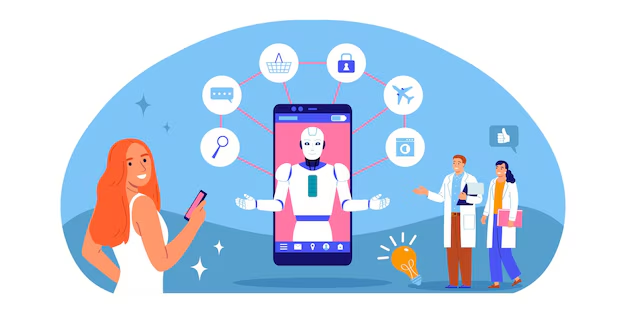
4. Continuous Monitoring and Early Detection
Smart healthcare devices, equipped with AI, enable continuous monitoring of patients, especially those with chronic conditions. AI-powered wearables and sensors can track vital signs, detect irregularities, and alert both patients and healthcare providers of potential issues. For example, smart watches can monitor heart rate and electrocardiogram (ECG) data in real time, and AI can identify signs of arrhythmias or other abnormalities. Early detection can significantly improve treatment outcomes and reduce the risk of emergencies.
5. Remote Healthcare and Telemedicine
AI also plays a critical role in telemedicine, enabling healthcare professionals to remotely monitor patients. With the rise of wearable devices and remote monitoring tools, patients can stay connected to their doctors without needing to visit a clinic or hospital. AI allows healthcare providers to monitor real-time data, conduct virtual consultations, and even make immediate adjustments to treatment plans based on the information received from these devices, ensuring continuous care without geographical constraints.

6. Enhancing Decision-Making
By providing real-time, data-driven insights, AI enhances decision-making in healthcare. AI-driven algorithms can recommend specific courses of action based on the latest research, patient history, and ongoing data inputs. This helps doctors make better decisions, faster. AI can even assist in interpreting complex medical imaging, such as MRI scans or X-rays, improving diagnostic accuracy and reducing human error.
Key Benefits of AI in Real-Time Monitoring
AI’s integration into real-time monitoring systems in healthcare offers a range of benefits that significantly enhance patient care and improve health outcomes. From early diagnosis to personalized treatment, here are the key advantages AI brings to the table in real-time healthcare monitoring:

1. Early Diagnosis and Predictive Analytics
One of the standout benefits of AI in real-time monitoring is its predictive capabilities. AI can analyze vast amounts of patient data and detect subtle changes that may indicate the early stages of a health issue, often before symptoms are visible. For example, AI-powered devices can predict the onset of heart conditions, strokes, or diabetic crises by analyzing real-time data such as heart rate variability, glucose levels, and blood pressure. Early diagnosis allows for timely intervention, reducing the likelihood of severe complications.
2. Personalized Healthcare
AI enables personalized healthcare by tailoring treatment plans based on individual patient data, including medical history, genetic factors, and real-time health readings. Unlike traditional healthcare, which often uses generalized treatment protocols, AI-driven systems adjust recommendations and actions for each patient. This ensures that care is always aligned with the patient’s specific needs, improving the effectiveness of treatment and reducing the risk of adverse effects.
3. Improved Patient Outcomes
By continuously monitoring vital signs and detecting abnormalities, AI-powered devices can intervene immediately when a potential health issue arises. Whether it’s a sudden drop in oxygen levels, irregular heart rhythms, or elevated blood pressure, AI systems can alert both the patient and healthcare provider, facilitating prompt action. This real-time intervention can significantly improve patient outcomes by reducing response times and preventing complications from worsening.
4. Remote Monitoring and Telemedicine
AI facilitates remote monitoring, which is especially valuable for patients with chronic conditions or those living in remote areas. Wearable devices and home monitoring systems that use AI can transmit real-time health data to healthcare providers, enabling telemedicine consultations. This allows doctors to monitor patients’ conditions continuously without requiring in-person visits. Remote monitoring not only improves patient convenience but also helps reduce the burden on healthcare facilities.
5. Data Accuracy and Efficiency
AI plays a crucial role in ensuring accurate data collection and analysis. Unlike human operators, AI algorithms can process and interpret large amounts of data quickly and consistently, without the risk of fatigue or error. This results in more reliable data, which is crucial for timely and effective decision-making. Moreover, AI can process data from various sources (wearables, medical devices, electronic health records) to provide a more comprehensive view of a patient’s health.
6. Cost Reduction
While the initial investment in AI-powered healthcare devices may be high, the long-term cost reduction is significant. AI-driven real-time monitoring helps detect health issues early, reducing the need for costly emergency interventions or hospitalizations. Additionally, the efficiency of AI in data analysis and remote monitoring can reduce the strain on healthcare providers, leading to more streamlined operations and better resource allocation.
7. Chronic Disease Management
AI is particularly effective in managing chronic diseases such as diabetes, hypertension, or cardiovascular diseases. With continuous real-time monitoring, AI-powered devices can track key health metrics, alert patients to critical changes, and help them manage their condition more effectively. For instance, AI can suggest medication adjustments based on real-time glucose levels or heart rate data, ensuring that chronic conditions are better controlled over time.
8. 24/7 Monitoring
Unlike traditional healthcare settings that operate within specific hours, AI-powered real-time monitoring systems provide continuous, 24/7 care. This ensures that patients are always being observed, and any changes in their health status are immediately flagged. Constant monitoring not only provides peace of mind to patients and caregivers but also ensures that no critical events go unnoticed, whether during the day or night.
9. Reduction in Human Error
Human error is a significant concern in healthcare, particularly when interpreting complex data. AI systems, with their ability to consistently analyze data and identify anomalies, reduce the likelihood of misdiagnosis or delayed interventions. This is especially beneficial in fast-paced environments, where quick and accurate decisions are essential to patient safety.
Applications of AI in Real-Time Healthcare Monitoring
Artificial Intelligence (AI) is rapidly transforming the way healthcare is delivered, especially through the use of real-time monitoring systems. By integrating AI into healthcare devices, a new era of personalized, efficient, and proactive care is emerging. Here are some of the key applications of AI in real-time healthcare monitoring:
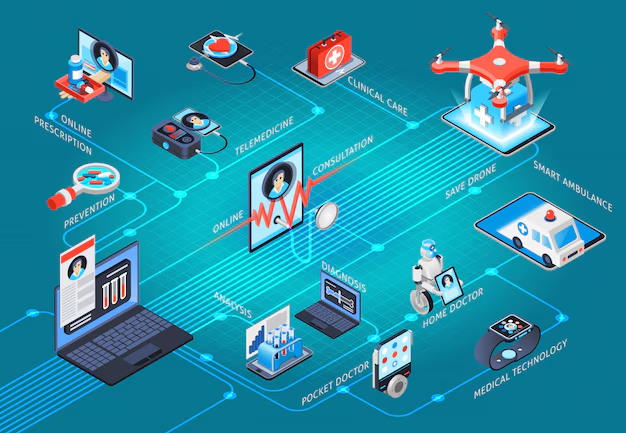
1. Wearable Health Devices
AI-powered wearable devices such as smartwatches and fitness trackers play a significant role in monitoring patients’ vital signs in real-time. These devices track metrics like heart rate, blood oxygen levels, sleep patterns, and physical activity. AI algorithms analyze this data to detect irregularities such as arrhythmias, blood pressure fluctuations, or signs of a stroke. The real-time alerts provided by these devices can prompt immediate action, helping prevent serious health issues before they escalate.
2. Remote Patient Monitoring (RPM)
AI-driven remote patient monitoring systems are revolutionizing the management of chronic conditions such as diabetes, hypertension, and heart disease. These systems continuously track patient data from home-based medical devices—such as glucose meters, blood pressure monitors, and pulse oximeters—and send it to healthcare providers for analysis. AI analyzes this data to predict potential health risks and enables healthcare professionals to make informed decisions in real time, adjusting medications or recommending lifestyle changes promptly.
3. AI in Cardiology
AI plays an essential role in cardiac monitoring, where real-time heart data is critical. AI algorithms can analyze continuous heart activity data from electrocardiograms (ECGs) and other cardiac monitoring devices to detect abnormal rhythms, ischemia, or signs of heart failure. For example, AI-enabled devices can monitor the heart’s electrical activity and predict the risk of arrhythmias, ensuring that patients receive timely treatment before serious events occur.
4. Chronic Disease Management
AI is particularly beneficial for patients with chronic diseases that require continuous monitoring. In conditions like diabetes, AI-based systems can analyze real-time glucose levels and suggest personalized insulin dosage adjustments. Similarly, AI can help track the progression of chronic respiratory conditions like asthma or chronic obstructive pulmonary disease (COPD) by continuously monitoring lung function and oxygen levels, alerting patients and doctors when intervention is required.
5. AI in Mental Health Monitoring
Real-time monitoring of mental health is also benefiting from AI integration. AI-powered wearables and mobile apps can track stress levels, sleep patterns, and even voice tone to detect early signs of mental health issues such as anxiety, depression, or bipolar disorder. AI systems analyze these data points and can alert both the patient and mental health professionals when intervention is needed, helping to prevent crises and enabling early treatment for mental health conditions.
6. AI in Sepsis Detection
Sepsis is a life-threatening condition that can progress rapidly. AI is increasingly used to monitor patients for early signs of sepsis in real-time. By analyzing vital signs such as heart rate, temperature, and blood pressure, AI algorithms can detect patterns that may indicate the onset of sepsis before they are visibly apparent. AI-powered monitoring systems can send real-time alerts to healthcare providers, allowing for early intervention and potentially saving lives.
7. Telemedicine and Virtual Care
AI enhances telemedicine and virtual care by allowing doctors to remotely monitor patients’ health data in real time. AI-powered virtual assistants can help collect and analyze patient symptoms, medical history, and real-time health data, enabling physicians to make informed decisions during remote consultations. This is particularly useful for patients who live in remote areas or have difficulty accessing in-person care, ensuring that they still receive continuous monitoring and timely interventions.
8. AI for Respiratory Monitoring
In patients with respiratory conditions, such as asthma or sleep apnea, AI systems can monitor breathing patterns and oxygen levels in real time. AI-powered sensors embedded in wearable devices or at-home equipment can track these metrics 24/7 and alert patients or doctors if oxygen levels drop or irregularities are detected in the breathing pattern. Real-time monitoring allows for early intervention, reducing the risk of complications such as asthma attacks or respiratory failure.
9. AI in Stroke Detection and Prevention
AI has shown great promise in stroke prevention and early detection. Through continuous monitoring of vital signs and brain activity, AI systems can identify signs of an impending stroke by analyzing real-time data. For example, AI can track blood pressure fluctuations, heart rate, and cerebral blood flow to predict the likelihood of a stroke occurring. Early alerts can facilitate immediate treatment, reducing the potential for brain damage and improving recovery outcomes.
10. AI in Post-Surgery Recovery
After surgery, real-time monitoring is critical for detecting complications such as infection, blood clots, or organ dysfunction. AI systems can analyze post-operative health data, including vital signs, mobility levels, and pain reports, to detect any unusual patterns. These systems can alert healthcare providers to potential problems, enabling early intervention and ensuring faster, safer recovery for patients.
11. AI in Emergency Medical Services (EMS)
AI is increasingly being used to enhance the performance of emergency medical services (EMS). Paramedics can use AI-enabled devices to monitor patients’ vital signs during transport to the hospital. AI can analyze this data in real time and provide recommendations for initial treatment, optimizing the chances of survival before the patient reaches the hospital. Additionally, AI can help EMS teams prioritize emergency cases based on real-time patient data, improving resource allocation during critical situations.
12. AI in Maternal Health Monitoring
AI-powered real-time monitoring is also enhancing maternal health by tracking the health of both the mother and baby during pregnancy. Devices can monitor factors such as fetal heart rate, maternal blood pressure, and uterine contractions, with AI algorithms analyzing this data for early signs of complications such as preeclampsia or fetal distress. Real-time alerts ensure timely intervention, reducing the risks associated with pregnancy-related health issues.
Conclusion
In conclusion, the integration of AI in real-time healthcare monitoring is revolutionizing the way healthcare is delivered, making it more proactive, personalized, and efficient. By continuously analyzing patient data from various sources like wearables, remote monitoring devices, and medical sensors, AI enables healthcare providers to make timely, informed decisions. Whether it’s managing chronic conditions, detecting early signs of acute events like strokes or sepsis, or improving post-operative recovery, AI ensures that patients receive the care they need when they need it the most, reducing the risk of complications and improving health outcomes.
As AI continues to evolve, its potential to transform healthcare is immense. From enhancing remote care and telemedicine to enabling personalized treatment plans, AI is bridging the gap between healthcare providers and patients, ensuring continuous, real-time monitoring. As these technologies advance, we can expect AI-driven solutions to become an indispensable part of everyday healthcare, not only improving the efficiency of healthcare systems but also ultimately saving lives and promoting better overall health.



